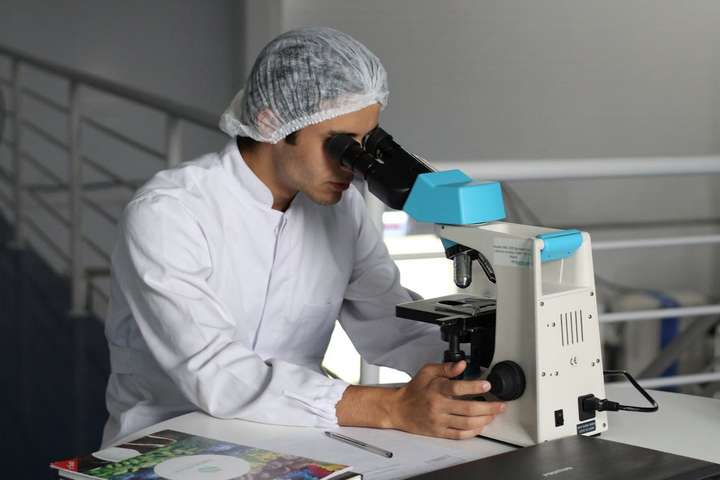Medical research is paving the way for advancements in improving human well-being and redefining our knowledge of and approaches to treating a range of medical problems.

The field of medical research is changing quickly, with developments in regenerative medicine and genetic therapy among its most notable breakthroughs. These advancements give optimism for improving the overall quality of life in addition to opening up new approaches to illness prevention and treatment.
Genetic Therapies: Precision Medicine Unveiled
In medical research, genetic treatments are an innovative method that concentrates on the underlying genetic elements that cause illness. By focusing on genes linked to genetic illnesses, scientists may create individualized therapies based on each patient’s unique genetic makeup. With the use of methods like CRISPR-Cas9 gene editing, defective genes may be precisely modified, perhaps reversing the genetic defects that cause diseases like muscular dystrophy and cystic fibrosis. A new age of precision medicine has begun with the development of genetic medicines, which provide unheard-of chances to cure hereditary problems that were previously incurable at their source.
Immunotherapy: Harnessing the Power of the Immune System
With immunotherapy, cancer treatment has changed significantly as it uses the body’s immune system to efficiently fight cancer cells. In contrast to conventional therapies like radiation and chemotherapy, which have the potential to damage both healthy and malignant cells, immunotherapy primes the immune system to identify and eliminate cancer cells alone. More focused and less harmful cancer therapies are on the horizon thanks to strategies like immune checkpoint inhibitors, CAR T-cell therapy, and cancer vaccines. Patients with advanced and previously incurable illnesses now have hope thanks to immunotherapy’s capacity to elicit long-lasting responses and maybe even cure certain types of cancer.
Regenerative Medicine: Healing Through Cellular Restoration
The goal of regenerative medicine is to replace and repair damaged tissues and organs by using the body’s natural healing processes. For example, stem cell treatments use stem cells’ capacity for regeneration to repair damaged or diseased tissues and return them to normal. Researchers are looking at using stem cells to treat a variety of illnesses, from diabetes and neurological diseases to heart disease and spinal cord injuries. Tissue engineering methods also make it possible to create bioengineered organs and tissues in the lab, offering an alternative to conventional organ transplantation and resolving the organ shortage. Functional lab testing plays a crucial role in this field by ensuring the effectiveness and safety of these innovative treatments. Because it provides cutting-edge approaches to tissue regeneration and repair, regenerative medicine has the potential to transform patient treatment completely.
Artificial Intelligence in Healthcare: Enhancing Diagnostic Accuracy
Through improving patient care pathways, forecasting treatment results, and improving diagnostic accuracy, artificial intelligence (AI) is revolutionizing the healthcare industry. Large-scale medical data, such as genetic profiles, imaging investigations, and clinical records, are analyzed using machine learning algorithms to find patterns and trends that would go unnoticed by humans. AI-driven diagnostic technologies can identify early illness indicators, forecast the course of a disease, and suggest tailored treatment regimens based on unique patient information. Additionally, chatbots and virtual assistants driven by AI are increasing the efficiency of healthcare delivery, simplifying administrative work, and fostering better patient communication.
Nanomedicine: Precision Delivery at the Cellular Level
Utilizing nanotechnology, nanomedicine aims to precisely deliver therapeutic medicines to specific bodily regions and cells. When medications, genes, or imaging agents are enclosed in nanoparticles, precise delivery and regulated release at the cellular level are made possible. This focused strategy reduces systemic adverse effects and improves therapeutic effectiveness, especially when treating drug-resistant infections and cancer. Additionally, non-invasive imaging methods are made easier by nanomedicine, giving medical professionals the ability to see and track the development of diseases with never-before-seen detail. The potential uses of nanomedicine in customized medicine and illness management are growing quickly as long as researchers keep innovating in the field of nanotechnology.
Biomedical Engineering: Innovations in Medical Devices
The creation of state-of-the-art medical equipment and technology aimed at enhancing patient care and treatment results is called biomedical engineering. Biomedical engineers are redefining healthcare delivery across a wide range of disciplines, from robotic surgical equipment and 3D-printed implants to sophisticated prostheses and wearable health monitoring. These developments not only increase long-term results, recuperation durations, and patient comfort, but they also raise the accuracy and precision of medical treatments. By bridging the gap between technology and medicine, biomedical engineering advances treatments, rehabilitative equipment, and diagnostic instruments on a constant basis.
Conclusion
To sum up, the field of medical research is marked by a constant state of innovation and discovery that results in significant progress toward improving human well-being. The future of wellness seems brighter, with optimism for healthier lives and better futures as scientists and medical experts continue to push the frontiers of medical knowledge.

